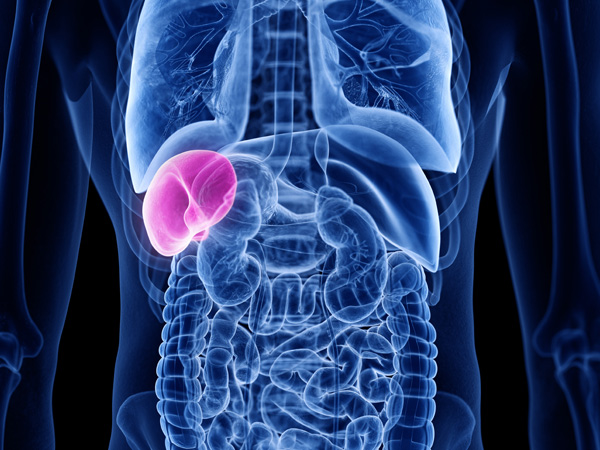Comprometidos con la información que impulsa la innovación
ACTUALIDAD
Enfermedad de Gaucher: cuándo indicar genética y cómo leer GBA

La enfermedad de Gaucher (EG) es el trastorno de depósito lisosomal más frecuente,
causado por variantes bialélicas en GBA que reducen la actividad de la enzima
glucocerebrosidasa. Afecta principalmente bazo, hígado y hueso; en sus formas
neuronopáticas compromete SNC. La prevalencia global se estima en ~0,9 por 100.000
habitantes, con mayor frecuencia en población judía asquenazí. El diagnóstico se
apoya en actividad enzimática reducida, biomarcadores (p. ej., lyso-Gb1,
chitotriosidasa) y confirmación molecular de GBA. En CIDEGEN ofrecemos la
secuenciación completa de GBA (código 51-00076) como prueba confirmatoria y para
asesoramiento familiar. Este artículo resume epidemiología, fisiopatología, algoritmo
diagnóstico, indicaciones de genética y consideraciones para la toma de decisiones
clínicas con base en consensos internacionales.
*Contenido informativo para profesionales de la salud; no sustituye la evaluación clínica.
Contexto epidemiológico
• Prevalencia global: ~0,9 casos/100.000; incidencia al nacer ~1,5 por 100.000.
Poblaciones fundadoras pueden alcanzar ≥1/1.000.
• Tipo 1 (no neuronopática) es la forma más común; tipos 2–3 presentan
afectación neurológica de inicio agudo o crónico.
Fisiopatología y clasificación
Las variantes en GBA disminuyen la glucocerebrosidasa lisosomal, con acúmulo de
glucocerebrósido y glucosil-esfingosina (lyso-Gb1) en macrófagos (“células de
Gaucher”), generando hepatoesplenomegalia, citopenias y afectación ósea; en formas neuronopáticas, compromiso del SNC. Se describen tipos 1, 2 y 3 y formas perinatal-
letal y “cardiovascular”.
Vía diagnóstica (algoritmo de decisión)
- Sospecha clínica: hepatoesplenomegalia, trombocitopenia/anemia, dolor óseo/crisis óseas, antecedentes familiares; en niños, retraso del crecimiento.
-
Pruebas iniciales
- Actividad de glucocerebrosidasa en leucocitos o DBS reducida.
- Biomarcadores: lyso-Gb1 ↑ (preferente), ± chitotriosidasa/CCL18.
-
Confirmación
- Estudio genético de GBA por secuenciación completa. Indispensable para confirmar el diagnóstico, clasificar variantes y ofrecer consejo genético.
-
Cuándo indicar genética directamente
- En presencia de actividad enzimática reducida o biomarcadores compatibles.
- Fenotipo compatible con EG con historia familiar/ascendencia de riesgo.
- Tamizaje de portadores en parejas con riesgo o familiares de pacientes.
Nota técnica: La presencia del pseudogén GBAP1 dificulta el análisis; los alelos recombinantes y algunas SV pueden requerir estrategias específicas; la NGS de lectura corta puede no resolver todos los eventos.
Estudio CIDEGEN vinculado:
Secuenciación completa del gen GBA — Código 51-00076
Indicación clínica
- Confirmación molecular de enfermedad de Gaucher sospechada por clínica/enzimática/biomarcadores.
- Estudio de portadores y familiar en cascada.
- Apoyo a consejería reproductiva (riesgo autosómico recesivo). (CIDEGEN brinda cobertura a toda LATAM desde España; sedes en Colombia y Chile para soporte local.)
Metodología/tecnología
- NGS de regiones codificantes y límites intrón-exón de GBA con confirmación por Sanger de variantes relevantes.
- Cobertura analítica: ≥99% de exones objetivo con profundidad media ≥150×.
Genes/biomarcadores
- GBA (todas las variantes SNV/indels en regiones cubiertas). No incluye biomarcadores plasmáticos (lyso-Gb1, CHIT1).
Cobertura y limitaciones
- Detecta SNV/indels en regiones cubiertas.
- Limitaciones: posibles alelos recombinantes con GBAP1 y reordenamientos estructurales complejos pueden no resolverse con NGS estándar; CNV grandes no garantizadas. Recomendaremos pruebas complementarias si procede.
TAT (tiempo estimado de entrega)
- 30 días hábiles (puede variar según complejidad/confirmaciones).
Interpretación clínica y toma de decisiones
- La confirmación genética no sustituye la valoración clínica, pero orienta pronóstico, riesgo familiar y opciones reproductivas.
- El manejo en EG1 incluye terapia de reemplazo enzimático (ERT) o terapia de reducción de sustrato (SRT) según objetivos de consenso EWGGD (hematológicos, viscerales y óseos) y seguimiento seriado con biomarcadores (preferentemente lyso-Gb1).
- Portadores de variantes GBA presentan riesgo aumentado de enfermedad de Parkinson, aspecto a cubrir en la consejería genética (no diagnóstico de PD).
Tabla rápida: pruebas en la ruta diagnóstica
| Paso | Prueba | Utilidad principal | Comentarios |
|---|---|---|---|
| 1 | Actividad de glucocerebrosidasa | Sospecha/confirmación bioquímica | Leucocitos/DBS; baja actividad apoya EG. |
| 2 | Lyso-Gb1 | Biomarcador específico; monitorización | Correlaciona con severidad y respuesta. |
| 3 | Chitotriosidasa / CCL18 | Monitorización | Útiles; considerar variantes nulas de CHIT1. |
| 4 | Secuenciación GBA (CIDEGEN 51-00076) | Confirmación molecular / consejo genético | Atención a GBAP1; Sanger confirmatorio. |
Caso práctico breve (ilustrativo)
Mujer de 28 años con esplenomegalia y trombocitopenia (80 ×109/L). Lyso-Gb1
elevado y actividad de glucocerebrosidasa reducida. NGS de GBA:
p.Asn409Ser/p.Leu483Pro (heterocigota compuesta). Se confirma EG1. Se inicia ERT,
con normalización progresiva de plaquetas y reducción de volumen esplénico; lyso–
Gb1 en descenso sostenido a 12 meses. (Ejemplo docente, no corresponde a un caso
real de CIDEGEN.)
¿Desea coordinar una asesoría o solicitar el estudio Gen GBA?
Contacte a nuestro equipo de asesores para ampliar información clínica, logística de
muestras y requisitos de envío.
Referencias (formato APA)
- Hughes, D. A. (2023). Gaucher Disease. GeneReviews®.
https://www.ncbi.nlm.nih.gov/books/NBK1269/ CNIB - Orphanet. (2024). Gaucher disease (ORPHA:355).
https://www.orpha.net/en/disease/detail/355 Orpha - Wang, M., et al. (2022). Global epidemiology of Gaucher disease. Curr Opin
Endocrinol Diabetes Obes, 29, 216–224.
https://pmc.ncbi.nlm.nih.gov/articles/PMC10115488/ PMC - Dinur, T., et al. (2023). Contribution of lyso-Gb1… Int J Mol Sci, 24.
https://pmc.ncbi.nlm.nih.gov/articles/PMC9966520/ PMC - OJRD Editorial. (2023). Glucosylsphingosine (Lyso-Gb1) as a reliable biomarker…
https://ojrd.biomedcentral.com/articles/10.1186/s13023-023-02623-7 BioMed
Central - Haematologica. (2021). Accuracy of chitotriosidase activity and CCL18…
https://haematologica.org/article/view/9633 Haematologica - Woo, E. G., et al. (2021). Next-Generation Sequencing Analysis of GBA1.
https://pmc.ncbi.nlm.nih.gov/articles/PMC8255797/ PMC - Biegstraaten, M., et al. (2018). Management goals for type 1 Gaucher disease
(EWGGD). Blood Cells Mol Dis.
https://www.sciencedirect.com/science/article/pii/S1079979616301917
ScienceDirect - Dardis, A., et al. (2022). Patient-centered guidelines for the laboratory diagnosis
of GD. Orphanet J Rare Dis, 17, 135.
https://ojrd.biomedcentral.com/articles/10.1186/s13023-022-02573-6 BioMed
Central - Toffoli, M., et al. (2022). Comprehensive short and long read sequencing of
GBA1/GBAP1. Commun Biol, 5, 1097.
https://www.nature.com/articles/s42003-022-03610-7 Nature - Stone, W. L. (2023). Gaucher Disease. StatPearls.
https://www.ncbi.nlm.nih.gov/books/NBK448080/ CNIB
Compartir

Cómo la amplificación de NECTIN4 se relaciona con la respuesta a enfortumab
vedotina

Cómo la amplificación de NECTIN4 se relaciona con la respuesta a enfortumab
vedotina

Cómo la amplificación de NECTIN4 se relaciona con la respuesta a enfortumab
vedotina
